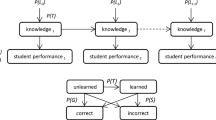Abstract
The main advancement in the field of engineering education is learning somewhat which is based on the problem. This term surely applied to any learning environment in which students drive learning. It is presented in such a way that students understand the problem before moving toward its solution and accordingly they need to gain new information. For the fourth year of the Computer Science and Engineering degree curriculum, this research introduces the knowledge of a formal problem-based learning procedure for educating a preliminary research component in the naive Bayesian method of machine learning. At the beginning of the module, the Naïve Bayes Algorithm design problem was introduced to students. For seven weeks, a small crowd of undergraduates were operated for this assignment, at the same time the instructor served as the information acquisition facilitator. Every week, brief, written information was composed as the learner evaluation, so that the learning environments were ensured. Due to COVID-19, most of the offline classes were suspended so this PBL experiment and the written reports are conducted /collected through the online mode. A list of guidelines to assist academic interest in pursuing PBL with a similar strategy is outlined in the report.
Access this chapter
Tax calculation will be finalised at checkout
Purchases are for personal use only
Similar content being viewed by others
References
Fauziyah N, Lant CL, Budayasa IK, Juniati D (2019) Cognition processes of students with high functioning autism spectrum disorder in solving mathematical problems. Int J Instr 12(1):457478. https://doi.org/10.29333/iji.2019.12130a
Geller EH, Son JY, Stigler JW (2017) Conceptual explanations and understanding fraction comparisons. Learn Instr 52:122–129. https://doi.org/10.1016/j.Learninstruc.2017.05.006
Gultepe N, Celik AY, Kilic Z (2013) Exploring effects of high school students ‘mathematical processing skills and conceptual understanding of chemical concepts on algorithmic problem solving. Aust J Teacher Educ 38(10):106–122. https://doi.org/10.14221/ajte.2013v38n10.1
Jena PC (2014) Cognitive styles and problem solving ability of under graduate students. Int J Educ Psychol Res 3(2):71–76.10
ZA, Abdullah NH, Anthony E, Salleh BM, Kamarulzaman R (2016) Does problem-based learning improve problem solving skills?—A study among business undergraduates at Malaysian Premier Technical University. Int Educ Stud 9(5):166. https://doi.org/10.5539/ies.v9n5p166.11
Karaçam S, Digilli Baran A (2015) The effects of field dependent/field independent cognitive styles and motivational styles on students’ conceptual understanding about direct current circuits. Asia- Pac Forum Sci Learn Teach 16(2), ar.6
Lopez BP (2014) Theme The 21st century adult learner. Educ Res Rev 12(8):540–548. https://doi.org/10.5897/ERR2016.2928
Loyens SMM, Jones SH, Mikkers J, van Gog T (2015) Problem-based learning as a facilitator of conceptual change. Learn Instr 38:34–42.https://doi.org/10.1016/j.learninstruc.2015.03.002
Margunayasa IG, Dantes N, Marhaeni AAIN, Suastra IW (2019) The effect of guided inquiry learning and cognitive style on science learning achievement. Int J Instruc 12(1):737–750. https://doi.org/10.29333/iji.2019.12147a
Mustofa RF, Hidayah Y (2020) The effect of problem-based learning on lateral thinking skills. Int J Instr 13(1):463–474
Palupi BS, Subiyantoro S, Rukayah, Triyanto (2020) The effectiveness of Guided Inquiry Learning (GIL) and Problem-Based Learning (PBL) for explanatory writing skill. Int J Instr 13(1):713–730.https://doi.org/10.29333/iji.2020.13146a
Reigeluth CM, Cheliman MC (2009) Instructional-design theories and model: building a common knowledge base, vol III. Taylor and Francis Publiser, New York
Rodzalan SA, Saat MM (2015) The perception of critical thinking and problem solving skill among malaysian undergraduate students. Proc Soc Behav Sci 172(2012):725–732. https://doi.org/10.1016/j.sbspro.2015.01.425
Sangestani G, Khatiban M (2013) Comparison of problem-based learning and lecture-based learning in midwifery. Nurse Educ Today 33(8):791–795. https://doi.org/10.1016/j.nedt.2012.03.010
Saricayir H, Ay S, Comek A, Cansiz G, Uce M (2016) Determining students’conceptual understanding level of thermodynamics. J Educ Train Stud 4(6):69–79. https://doi.org/10.11114/jets.v4i6.1421
Sellah L, Jacinta K, Helen M (2017) Analysis of student- teacher cognitive styles interaction: an approach to understanding learner performance. J Educ Pract 8(14):10–20
Strobel J, van Barneveld A (2009) When is PBL more effective? a meta- synthesis of meta-analyses comparing PBL to conventional classrooms. Interdiscip J Problem-Based Learn 3(1). https://doi.org/10.7771/1541-5015.1046
Sudarman, Setyosari P, Kuswandi D, Dwiyogo WD (2016) The effect of learning strategy and cognitive style toward mathematical
Cuschieri S, Grech V, Savona-Ventura C (2018) WASP (Write a Scientific Paper): how to write a scientific thesis. Early Human Dev 127:101–105. https://doi.org/10.1016/J.EARLHUMDEV.2018.07.012
Dahl B (2018) What is the problem in problem-based learning in higher education mathematics. Eur J Eng Educ 43(1):112–125.https://doi.org/10.1080/03043797.2017.1320354
Mack C (2016) How to write a good scientific paper: review articles. J Micro/Nanolith, MEMS, MOEMS 15. https://doi.org/10.1117/1.JMM.15.2.020101
Author information
Authors and Affiliations
Corresponding author
Editor information
Editors and Affiliations
Rights and permissions
Copyright information
© 2022 The Author(s), under exclusive license to Springer Nature Singapore Pte Ltd.
About this paper
Cite this paper
Mishra, V.K., Mishra, M., Sheetlani, J., Sah, R.D., Mishra, A., Kurariya, S. (2022). Dynamic Education Background: Procure the Maximum Initiation from PBL for Education Naïve Bayes Algorithm for Machine Learning. In: Sharma, S., Peng, SL., Agrawal, J., Shukla, R.K., Le, DN. (eds) Data, Engineering and Applications. Lecture Notes in Electrical Engineering, vol 907. Springer, Singapore. https://doi.org/10.1007/978-981-19-4687-5_10
Download citation
DOI: https://doi.org/10.1007/978-981-19-4687-5_10
Published:
Publisher Name: Springer, Singapore
Print ISBN: 978-981-19-4686-8
Online ISBN: 978-981-19-4687-5
eBook Packages: Computer ScienceComputer Science (R0)




